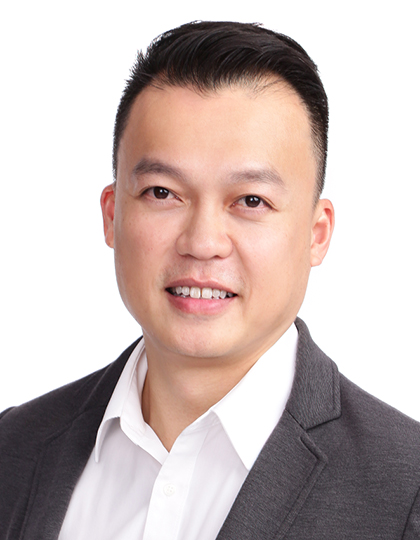Expanding Toolbox Spurring Opportunities
31 August 2022 | Opinion | By Ruplekha Choudhurie, Senior Industry Analyst/Team Lead (Health & Wellness), TechVision, Frost & Sullivan
Synthetic biology tools have been around for decades, but it is only in the past few years that they have been actively deployed

Synthetic biology encompasses myriad technologies combining life sciences, engineering, and chemistry to improve, optimise, or enable the de novo design of artificial cells, organisms and cellular pathways. It can be integrated into a multitude of industry segments, support process improvement, and drive the development of new products and processes. Rapid strides in high-throughput, high-fidelity, low-cost DNA and oligo synthesis, DNA printing, genome editing tools, and engineered gene circuits, coupled with advances in digitisation, automation and artificial intelligence (AI), are propelling the SynBio applications.
They have the potential to disrupt the industrial ecosystem in healthcare (drug discovery, diagnostics), energy & environment (bioremediation, clean energy), industrial biomanufacturing (chemicals, flavours, fragrances, biomaterials), and agritech and foodtech (livestock feed, cultured proteins) to name a few. The synthetic biology toolbox has transformed the way the healthcare and life sciences industry functions and has become a ubiquitous tool for basic life sciences research, drug discovery, diagnostics, programmable therapeutics, etc. Within healthcare, next-generation biomanufacturing and advanced therapies can be impacted greatly with seamless integration.
Synthetic biology tools have been around for decades, but it is only in the past few years that they have been actively deployed, bolstering an era of sustainability and enabling the creation of a bioinspired economy. While the US and UK were the initial hubs of R&D and investments for synthetic biology and have well-developed SynBio networks, it has gained momentum in Asia, which expects to witness a surge of R&D activities, partnerships, and product development in the near term (2023-2025).
Growing Ecosystem
The Asian Synbio ecosystem is diverse and dynamic, with several research hubs and startups in Singapore, China, Japan, Korea and India. These countries are witnessing a wave of R&D activities, investments, and product development, providing impetus to the high demand for synthetic biology tools. Global leaders in synthetic oligo and DNA synthesis, DNA vectors, and genome editing tools, such as Twist Bioscience, DNA Script, Touchlight Genetics (developer of Doggybone DNA vector), and Thermo Fisher, are poised to meet the requirements of this region with their capabilities. Twist Bio and DNA Script have focused on expanding their operations in Asia in the past five years to provide DNA and oligonucleotide at scale.
Biofoundries for Accelerated Translation
Synthetic biology research is still nascent, complex, and lengthy, requiring huge infrastructure investments, skilled personnel, and data management systems. Biofoundries could serve as a one-stop solution to provide open-source technologies, infrastructure, standardisation and research space to academia and startups around the globe to unravel the complexity and volumes of synbio research. While many nations have come forward to build public biofoundries and consortia (The Global Biofoundry Alliance), aiming to promote cooperation between nations, some nations are also improving their country’s internal strengths with private and public biofoundries.
In Asia, Singapore SynCTI (Synthetic Biology for Clinical and Technological Innovation) Foundry co-founded the Global Biofoundry Alliance, while China’s Shenzhen Biofoundry also provides a collaborative and automated research setup. The Singapore Consortium for Synthetic Biology (SINERGY) is instrumental in fostering industry-academia partnerships, such as the successful partnership between UK-based automation and robotics developer Singer Instruments and BioFoundry Singapore. Shimadzu is partnering with the Kobe University spinout Bacchus Bio to build Japan’s first biofoundry.
Era of Sustainability and Circularity
Microbial fermentation has advanced by leaps and bounds, and synbio tools are being used to create engineered microbial factories to drive precision fermentation for a multitude of end products, including drugs and enzymes for healthcare, flavours, fragrances, functional ingredients (a paradigm change for agriculture and foodtech), and biomaterials and biofuels for clean energy and industrial materials. Various microbial hosts and plants can be engineered to manipulate the metabolic pathways to optimise and scale up processes for the large-scale manufacture of biopolymers and biofuels (algae, yeast). Most synbio startups aim to develop processes that have a lower carbon footprint, lower resource requirements, are less energy intensive and produce “cleaner” end products compared to conventional methods.
Several startups have mushroomed in Singapore, Japan, and China for immediate translation across feedtech, foodtech, agritech and cleantech applications. Singapore-based Peptobiomics is the world's first company to leverage precision fermentation for manufacturing recombinant peptides as an alternative to feedstock antibiotics, while Kinnva and others are promising.
The burgeoning impact of precision fermentation is clearly observed in Japan and China through several successful startups. Japanese synthetic biology company Spiber uses precision fermentation to produce animal-free silk, cashmere fur and other biomaterials for sustainable apparel. Chinese synbio companies such as Cathay Biotech, Bluepha and Bota Bio are also aligned with the nation’s focus on sustainability and the environment. These companies have developed precision fermentation platforms with data and automation tools to develop biomaterials and biofuels from engineered microbial hosts.
Southeast Asia is also seen as a hub for synbio-based sustainable manufacturing, and global companies are expanding their manufacturing footprint here. For instance, Solugen Inc., a synbio chemicals manufacturer, recently partnered with Singapore’s Temasek and received an investment from the state fund to accelerate the scale-up of Solugen's molecular manufacturing platform for clean chemicals and materials. Singapore was chosen as the hub, and through this partnership, Solugen will include new R&D and production facilities in Southeast Asia across markets such as F&B, clean water, and agriculture.
It is interesting to note that Gulf Cooperation Council (GCC) nations, which are rich in crude oil, are now turning toward synthetic biology to offset the oil and gas environmental impact and have advanced microalgae-based projects. Though not at a commercial level, universities such as New York University, Abu Dhabi University and King Abdullah University of Science and Technology (KAUST) are making rapid strides in scalable microalgal manufacture. In addition to making manufacturing more sustainable, microbes and plants can also be engineered and optimised to produce vaccines, drugs and other chemicals and secondary metabolites, which could also act as a substrate for their growth, thereby promoting circularity.
Cellular Agriculture
Asia is emerging as a hub for cellular agriculture, where cultured meats and alternative proteins using engineered microbes and cell culture approaches are garnering traction. Singapore leads the pack globally in terms of cultured meat, with Eat Just being the first company globally to commercialise cultured chicken. The company received significant funding—close to $270 million to date—positioning it strongly to expand its operations beyond Singapore. Shiok Meats, a Singaporean startup with $30 million in funding, is focused on developing lab-grown seafood. It recently won the Nikkei Asia Award and plans to start commercial sales in mid-2023. The company plans to launch its products in Singapore and eventually expand into other markets, such as Japan, Malaysia, Indonesia, South Korea and Hong Kong.
China is also betting big on farmed meat and recently announced its plans to promote cultured meat and other ‘future foods’ in its Five-Year Agricultural Plan. In June 2022, it unveiled a three-year federal-funded initiative to manufacture artificial meat. Companies such as CellX and Joe's Future Food (pork belly) have received solid funding and are setting the stage for cell-based meat in China. India and Japan are also following suit, with companies such as ClearMeat and Integriculture advancing their cell-based meat platforms. In addition to B2C business, companies such as Shiok and ClearMeat plan to take the B2B route to licence their technology, which would expand tech penetration and outreach.
Future of Drug Discovery
High costs, long timelines, and late-stage failures of clinical candidates have compelled several startups around the globe to deploy synbio tools to develop disease models, discover novel targets, discover biomarkers, and monitor the response to perturbations in real-time. Synthetic biology tools can drastically improve the drug discovery process as reliable tools for drug screening, hit validation, and disease pathway mapping.
The development of logic-gated, programmable therapeutics (gene circuits) and targeted immunotherapies with advanced safety, targeting and efficacy give it the potential to transform cell and gene therapies. In addition, engineered live biotherapeutics, optimised probiotics and microbial chassis for drug delivery can be leveraged in microbiome therapeutics and as advanced antimicrobials. CRISPR-derived synthetic biology tools are being explored for diagnostics and therapeutics and to engineer complex metabolic engineering networks such as the dual CRISPRa/CRISPRi circuits for conditional induction, whereby many cellular and bioprocesses can be scaled easily and optimised. Universities such as National University of Singapore (NUS), Nanyang Technological University (NTU) and Beijing University have done groundbreaking research on gene circuit-driven therapeutics and biosensing, but there are no notable companies developing “smart” therapeutics in the region. The COVID-19 pandemic set the stage for the active adoption of synthetic biology for vaccine design and manufacture, which are highly amenable for a synthetic biology workflow, especially the mRNA vaccines.
Moving to the Next Level
Singapore is emerging as a global hotspot for synbio research and product commercialisation, with several consortia and investments targeted to improve biomanufacturing, clean energy and foodtech. Ingraining synthetic biology in its future frameworks, Singapore recently announced about $19 million dedicated to funding synthetic biology research in the government’s RIE2020 plan. China’s synthetic biology ecosystem is also quite mature, with several concerted government efforts, CoEs and investments into promising synbio startups, priming it for future growth.
Japanese universities are engaged in active synbio research, while the government promotes industry-academia partnerships and large-scale investment to build infrastructure. India is also setting foot into this space to establish a biofoundry. The Department of Biotechnology (DBT) recently released a draft foresight paper on synthetic biology, highlighting the need to develop a national policy around the R&D and translation of this important theme. Several chemical manufacturers, industrial manufacturing companies, pharma and food tech companies are betting big on the Asian synthetic biology community to innovate and expand in the region.
Opportunities
Biosensing holds tremendous potential, and several universities are working toward developing genetic circuits in both cell-free and whole-cell biosensors. These would be useful in understanding complex microbial interactions and microbe-environment interactions and be leveraged in clinical diagnostics. Synthetic biology-based therapeutics and diagnostics and de novo-designed microorganisms are still in the nascent stage in Asia, though there is active research at the academic level. Companies like Engine Biosciences will continue to lead the way for drug discovery, and more startups are expected to emerge as university spinoffs to propel synthetic biology-driven drug discovery.
Cell-free cloning and expression systems are promising for scalable and cost-efficient protein expression, providing compelling advantages over cell-based systems. This is another area that newer startups could explore. The success story of Japan-based OriCiro, which has developed a high-throughput, rapid, enzymatic cell-free cloning method for up to 1MB of DNA, could lay the foundation for others to venture into this domain.
While the application of synthetic biology is limitless, the immediate future is likely to witness higher implementation in clean chemicals and materials manufactured using precision fermentation. Synthetic biology startups targeting agritech and foodtech are attractive investment targets.
Ruplekha Choudhurie, Senior Industry Analyst/Team Lead (Health & Wellness), TechVision, Frost & Sullivan












